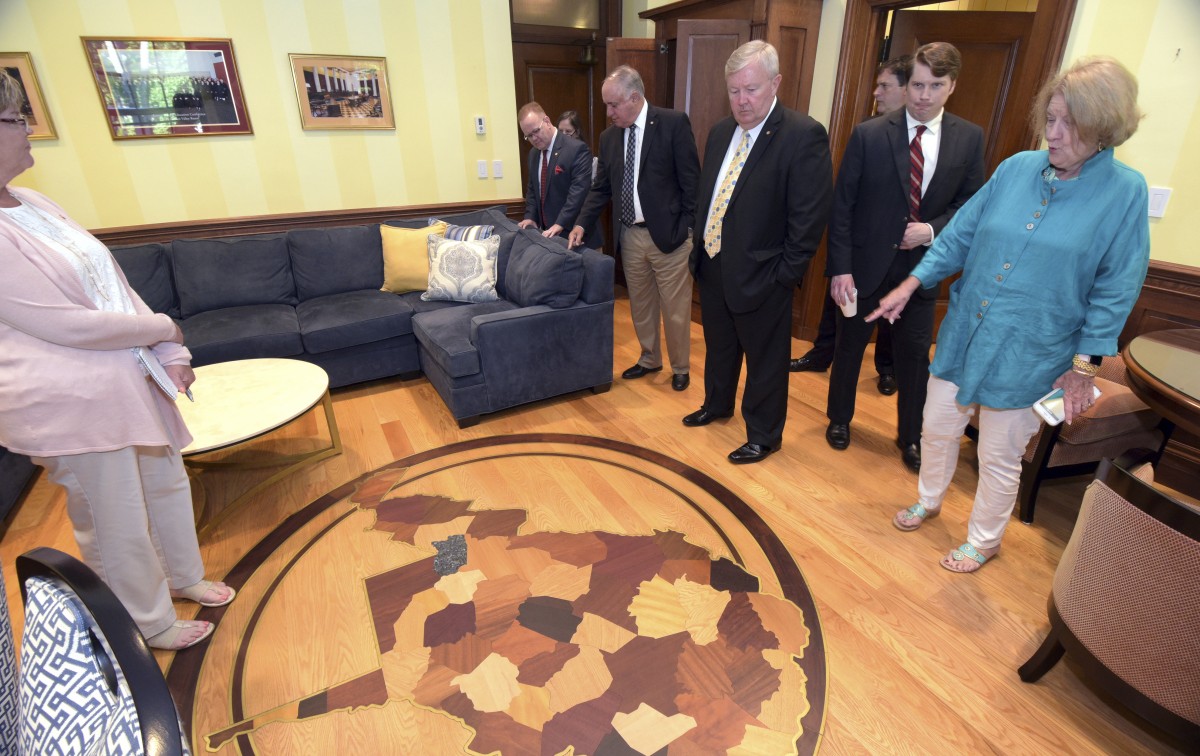CHARLESTON — As the next phase of West Virginia’s impeachment proceedings ramps up, public perception of the state Supreme Court is at rock bottom.
Only 4 percent express “a great deal” of trust in the Supreme Court, according to the latest WVMetroNews/Dominion Post poll.
And just 12 percent express “quite a lot” of confidence in the court, which has been embroiled in controversy for a year.
Together, the number of likely voters expressing any optimism about the court register down in the teens.
“You’d want your judiciary to have a high vote of confidence among likely voters,” said professional pollster Rex Repass, author of the West Virginia poll.
“But among likely voters there’s very little confidence, as one would expect considering the controversy. It’s very alarming for the highest court in the state.”
That perception provides the backdrop as the state Senate gathers at 10 a.m. today for a pretrial hearing on the impeachment of the remaining members of the Supreme Court.
The House of Delegates last month passed 11 articles of impeachment dealing with the justices’ administrative and spending decisions.
Senators could serve as jurors for as many as four trials, for justices Margaret Workman, Beth Walker, suspended Allen Loughry and Robin Davis, who announced her resignation the day after the House of Delegates passed 11 impeachment articles last month.
Justice Menis Ketchum resigned before impeachment began. He has pleaded guilty in federal court to a mail fraud charge related to his use of a state vehicle to drive to golf outings in Virginia. His use of a state-issued purchasing card for gasoline triggered a fraudulent cross-state payment.
Senators serve as a jury to consider the articles of impeachment and decide whether the remaining justices should be removed from office.
Presiding Justice Paul Farrell, who was named to the Supreme Court to fill in during Loughry’s suspension, may determine the schedule for up to four trials.
West Virginia’s Constitution allows for any officer of the state to be impeached for maladministration, corruption, incompetency, gross immorality, neglect of duty, or any high crime or misdemeanor.
West Virginia has reached this point after months of controversy involving the Supreme Court.
Scandals came to a head this summer when Loughry was first charged by the state Judicial Investigations Commission and then by the U.S. Attorney’s Office. In each case, Loughry was accused not only of misusing state resources but, worse, lying about the acts to investigators.
He has been suspended from the Supreme Court and faces two dozen federal charges. Loughry’s federal trial is set for Oct. 2.
The spark was lit last September with news reports about lavish renovations of justices’ chambers: the $32,000 couch and $7,500 wooden inlaid floor in Loughry’s office, a $500,000 office renovation and $28,000 rug in Davis’ office, and a $130,000 upgrade of Walker’s chambers.
Loughry denied guiding his own renovations. Controversy then erupted over Loughry’s possession at his home of an antique desk associated with famed architect Cass Gilbert from when the state Capitol was built. He took it home in 2012, while still a law clerk.
Then another couch added fuel to the fire. Loughry was accused of taking home a leather couch that had belonged to Justice Joseph Albright.
After all that, most likely West Virginia voters have an unfavorable view of the court — 21 percent say they have no confidence in the court at all and 33 percent say they have “very little” trust in the court.
“What we see here is you have 54 percent have very little or no confidence in the West Virginia Supreme Court,” Repass said.
“If you look at the data by demographic groups, those who tend to have the least confidence are those who are more media-informed. They’re following closely the election, they’re likely following news closely and it’s higher education and age categories.”
Only 31 percent say they have “some” trust remaining.
“The actions by the state Supreme Court and the impeachment process and trial have created a lot of anxiety about the state Supreme Court,” Repass said. “West Virginians are looking for an answer. It would appear they’re awaiting the process to resolve this matter.”
Next up is the state Senate, serving as a jury.
Tweet Brad McElhinny @BradMcelhinny. Email Brad.McElhinny@wvradio.com




